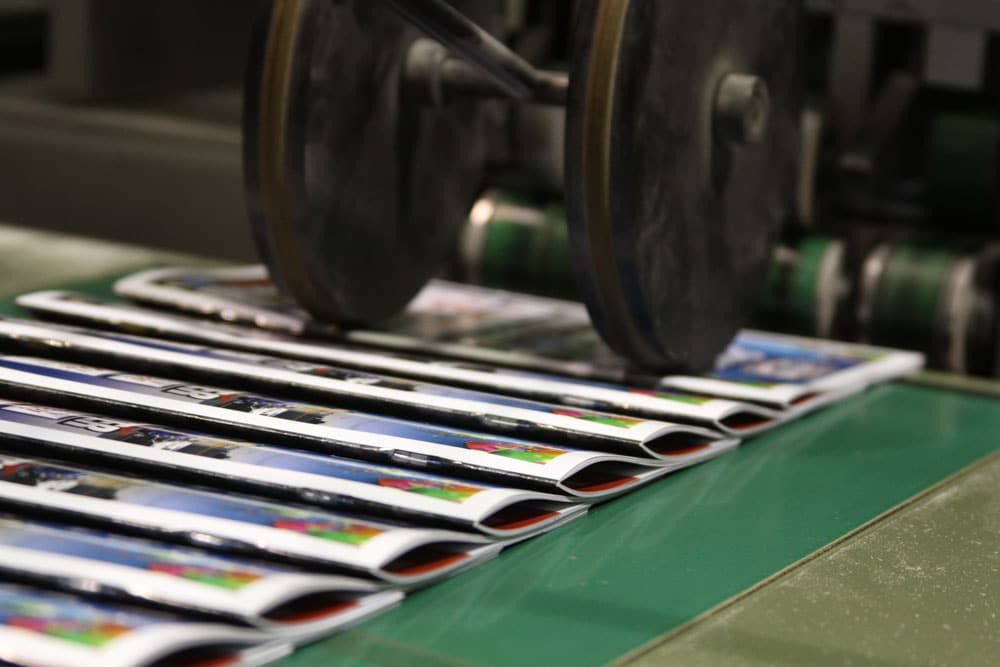We help provide your digital or offset print project with the finishing and binding it needs once it rolls off our presses.

Saddle stitching is the process of inserting staples into the spine of a printed and folded piece to bind the pages together. At Searles Graphics we can saddle-stitch anywhere from 8 – 140 pages, depending on stock.


Perfect binding involves applying an adhesive to one side of the pages in your piece and then wrapping the entire book with the a cover, creating the front and back covers and the spine at the same time. Small books are difficult to perfect bind so page counts range anywhere from about 40 – 400+ pages.
Also known as spiral binding, coil binding is used in a number of applications. For items that see a lot of use (catalogues and directories, for example), spiral binding is often preferred over perfect binding because it holds up better to wear and tear over a longer period of time. There are no minimums to coil binding, and we’ve handled jobs well over 400 pages.


A rivet binding is generally used for portfolio-type applications. If you’ve ever seen a color swatch book, chances are that it was rivet-bound; a single rivet is usually inserted into one of the top corners so that the individual swatches can be fanned out and viewed simultaneously.
Two large format cutters help us run and finish a wide variety of commercial print jobs. Check out the video on the right to see one of our cutters in action!


Folding paper is an art that we’ve mastered here at Searles Graphics. Getting a fold right requires knowledge and attention throughout the entire production process; careful planning in design, stock selection, and pre-press help ensure a print job will fold well without cracking or a degradation in quality.
There are a number of jobs that require collating services. Perfect bound books, coil-bound books, Z-fold mailers, and stapled packets are just a few examples of jobs that traditionally need to be collated. We offer both hand- and machine-collating options and have yet to meet a collating job we can’t handle!


Scoring is a mechanical process that impresses a notch or indentation along a sheet of paper to assist in folding the piece. Scoring helps keep some pieces from cracking on the folder. It also works well for printed pieces you purchase in bulk but use sporadically, like menus or thank you cards, that store better flat but need to be folded prior to use.
Perforating involves punching a number of small holes in a print piece to allow the recipient to tear a section cleanly from the rest of the piece. Perforating is ideal for marketing and direct mail pieces that require a response, like an invitation, donor outreach mail, questionnaires, or business reply cards.


Holes can be used for a number of applications. The two most common are for easy inclusion in 3-ring binders and holes used to make it easy for someone to hang an item (e.g. the single hole drilled through a calendar so you can hang it up with a pushpin or thumbtack). Whatever your application, our drills can be configured to achieve the end result you need.